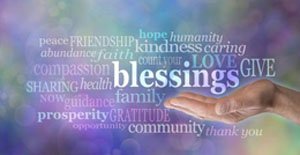How to Start Journaling
A Journaling Guide to Untangling the Complexities of Your Mind
Spirituality

There is a certain intimacy in the act of putting pen to paper, a private communion between the mind and the blank page. In this age of digital communication and fleeting thoughts, the practice of journaling stands as a testament to the enduring power of the written word. It is a solitary act, a means of capturing the ephemeral whispers of our souls and etching them onto the canvas of time. The benefits of journaling extend far beyond the mere act of writing; it is a gateway to self-discovery, solace, and profound personal growth.
Ink on Paper: The Unspoken Benefits of Journaling
In the quiet corners of our lives, when the world seems to rush past us in a blur of noise and commotion, journaling offers a haven of stillness. It is a space where we can retreat, unburden our thoughts, and untangle the complexities of our minds. Through the ritual of putting words on paper, we embark on a voyage of self-exploration, delving into the depths of our emotions and experiences.
Journaling allows us to externalize the internal, transforming amorphous thoughts into tangible form. As we trace the contours of our thoughts and emotions, we gain clarity and perspective. The page becomes a mirror that reflects our innermost selves, capturing our joys, fears, hopes, and dreams. In this act of self-expression, we release the weight of our thoughts, freeing ourselves from the entanglements that bind us.
But journaling is more than a release; it is an act of witness. Through the written word, we bear witness to our own growth and evolution. The journal becomes a chronicle of our lives, a testament to our resilience and our capacity for change. Leafing through the pages of our past, we see how far we have come, how we have weathered storms, and emerged stronger on the other side. Our journal becomes a trusted confidant, an unflinching companion in the journey of self-discovery.
There is a cathartic power in the act of journaling. As we lay bare our thoughts and emotions, we find solace and relief. We unburden ourselves of the weight we carry, creating space for healing and renewal. In this sacred space, we can confront our fears, unravel our doubts, and find the courage to face the challenges that lie ahead. Journaling becomes an act of self-care, a sanctuary where we can nurture our own well-being.
Beyond the personal realm, journaling has the power to connect us to the world around us. In chronicling our experiences, we create a narrative that resonates with others. Our words become a bridge, forging connections and fostering empathy. Through our stories, we find solace in the shared human experience, and we realize that we are not alone in our triumphs and struggles.
The benefits of journaling daily are manifold, yet they remain largely unspoken. In a world that values speed and efficiency, the quiet act of journaling may seem inconsequential. But within those handwritten pages lies a treasure trove of self-knowledge, introspection, and personal growth. It is a testament to the enduring power of the written word, an art form that allows us to transcend the limitations of time and space.
So, let us pick up our pens and reclaim this ancient practice. Let us carve out moments of stillness amidst the chaos, and invite the whispers of our souls to dance across the page. Let us bear witness to our own stories and find solace in the act of self-expression. For in this act of journaling, we embark on a profound journey of self-discovery, unlocking the door to our innermost selves and embracing the transformative power of the written word.
15 Benefits of Writing in a Journal
-
Self-Reflection: Journaling provides a space for self-reflection and introspection. By putting our thoughts and experiences into words, we gain a deeper understanding of ourselves, our emotions, and our patterns of thinking.
-
Emotional Release: Writing in a journal allows us to express and release our emotions in a safe and private way. It provides an outlet for pent-up feelings, helping us process and navigate through challenging situations.
-
Stress Reduction: Journaling has been shown to reduce stress levels. When we write about our worries, anxieties, or frustrations, we can gain a sense of relief and perspective, easing the burden on our minds.
-
Creative Outlet: Journaling can be a creative outlet for self-expression. It allows us to explore our imagination, experiment with language, and discover new perspectives. Writing freely in a journal can ignite our creativity and unlock hidden insights.
-
Goal Setting and Tracking: Journaling can serve as a powerful tool for setting and tracking personal goals. By documenting our aspirations, progress, and setbacks, we can stay accountable and motivated on our journey toward self-improvement.
-
Problem Solving: Writing about challenges or dilemmas can help us gain clarity and find solutions. Through journaling, we can explore different perspectives, brainstorm ideas, and identify patterns or recurring obstacles that may be hindering our progress.
-
Memory Preservation: Keeping a journal allows us to preserve memories and experiences. By documenting our daily lives, special moments, and significant events, we create a personal chronicle that we can revisit and cherish in the future.
-
Personal Growth: Journaling is a tool for personal growth and self-awareness. It enables us to track our progress, celebrate achievements, and identify areas for improvement. By reviewing past entries, we can observe patterns, track our growth, and make intentional choices for our future.
-
Problem Solving: Writing about challenges or dilemmas can help us gain clarity and find solutions. Through journaling, we can explore different perspectives, brainstorm ideas, and identify patterns or recurring obstacles that may be hindering our progress.
-
Emotional Healing: Journaling can support emotional healing and recovery. By writing about past traumas, difficult experiences, or emotional wounds, we can begin to process and release the associated pain. Journaling can also serve as a space for self-compassion and forgiveness.
-
Mindfulness and Presence: Engaging in journaling cultivates mindfulness and presence. When we write, we anchor ourselves in the present moment, paying attention to our thoughts, feelings, and surroundings. This practice enhances self-awareness and helps us cultivate a deeper connection with ourselves and the world around us.
-
Boosting Creativity: Journaling stimulates creativity and unlocks new perspectives. By allowing our thoughts and ideas to flow freely on the pages, we tap into our innate creativity and explore new ways of thinking and problem-solving.
-
Clarifying Values and Priorities: Through journaling, we can explore our values, beliefs, and priorities. By examining our thoughts and choices, we gain clarity about what truly matters to us, enabling us to make aligned decisions and live a more fulfilling life.
-
Gratitude Practice: Keeping a gratitude journal fosters a positive mindset and appreciation for life's blessings. By regularly noting down the things we are grateful for, we cultivate a sense of gratitude, shifting our focus toward the positive aspects of our lives.
-
Personal Documentation: Journaling serves as a personal documentation of our life's journey. It allows us to record our thoughts, experiences, and personal growth over time, creating a valuable resource for self-reflection, reminiscing, and sharing our stories with future generations.
Famous People That Revered Their Journaling Time
Journaling is a practice that has been embraced by many famous individuals throughout history. Here are a few notable examples of historical figures that benefited from their journaling habits:
Anne Frank: Anne Frank, the renowned diarist, kept a journal during World War II while hiding from the Nazis. Her diary, known as "The Diary of a Young Girl," has become one of the most widely read and influential books in the world, documenting her experiences, thoughts, and emotions during the Holocaust.
Leonardo da Vinci: The celebrated artist, inventor, and polymath, Leonardo da Vinci, was an avid journaler. His notebooks contain a wealth of sketches, scientific observations, and personal reflections, providing insights into his creative process and intellectual pursuits.
Virginia Woolf: Virginia Woolf, the influential English writer, used journaling as a tool for self-exploration and creative expression. Her diaries are renowned for their introspective and intimate nature, offering glimpses into her thoughts, writing process, and personal struggl
Frida Kahlo: The Mexican artist Frida Kahlo used journaling as a means of self-expression and healing. Her illustrated diary, filled with personal reflections, dreams, and symbolic imagery, provides a deeper understanding of her life, art, and struggles.
Ralph Waldo Emerson: The renowned American essayist and philosopher, Ralph Waldo Emerson, maintained extensive journals throughout his life. His journals served as a repository for his thoughts, observations, and insights on nature, society, and spirituality, influencing his literary works and philosophical ideas.
Sylvia Plath: Sylvia Plath, the acclaimed American poet, kept a journal from a young age until her death. Her journals, known as "The Unabridged Journals of Sylvia Plath," offer a candid and intimate look into her personal life, artistic process, and struggles with mental h
Mark Twain: Mark Twain, the iconic American writer and humorist, was a devoted journaler. His journals span several decades and provide a window into his thoughts, experiences, and witty observations, showcasing his unique literary style and keen social commentary.

How to Start Journaling
To embark on the journey of journaling, one must first find a quiet corner of solitude. Seek out a cozy nook where thoughts can flow freely and uninterrupted. It may be a sun-drenched room or a secluded spot in nature, far from the clamor of the outside world.
Next, procure a vessel for your words. Choose a journal that resonates with your sensibilities. Allow your fingertips to graze the pages, sensing the potential held within. Whether it be a leather-bound tome or a humble notebook, select one that invites you to pour your soul onto its awaiting sheets.
As you embark on this literary odyssey, abandon the constraints of time and structure. There is no predetermined schedule or specific length to adhere to. Liberated from the shackles of expectation, you are free to roam the landscapes of your mind as the spirit moves you.
Dive into the depths of your thoughts, unfurling the tapestry of your emotions. Explore the terrain of your innermost desires and fears, allowing the ink to capture their essence. Your journal is a sanctuary, a haven where honesty reigns supreme.
No censorship is allowed within these sacred pages. Let your thoughts spill forth like a cascading waterfall, untamed and unfiltered. Do not concern yourself with perfection or judgment, for this is a realm of raw authenticity.
Find solace in the act of recording your experiences. The mundane and the extraordinary alike deserve their place upon these hallowed pages. Chronicle the subtleties of your days—the tender glances, the whispers of wind, the aroma of freshly brewed coffee. Each detail is a thread that weaves the fabric of your existence.
Feel the weight lift from your shoulders as you entrust your secrets to the parchment. The act of writing grants release, allowing burdens to dissipate with each stroke of the pen. Embrace the catharsis, the liberation that journaling offers.
In this realm of self-discovery, there is no destination to reach. Instead, revel in the process. Watch as the pages transform into a mirror, reflecting the multifaceted facets of your being. Observe patterns emerge, insights blossom, and growth unfold.
And as you tread upon this path, remember that the beauty of journaling lies not in the end result, but in the transformative power of the journey itself. It is a vessel for self-expression, an avenue for reflection, and a sanctuary for the unspoken. Allow your journal to be your trusted confidant, your faithful companion on this remarkable voyage through the chambers of your soul.
Did You Enjoy This Article? Share It With Your Friends

Shop at the
New Age Store
Comments
RELATED ARTICLES


The Old Soul
By PHIL WITTMEYERLearn about the Overleaves, personality traits that shape our individual experience during each lifetime.
READ MORE